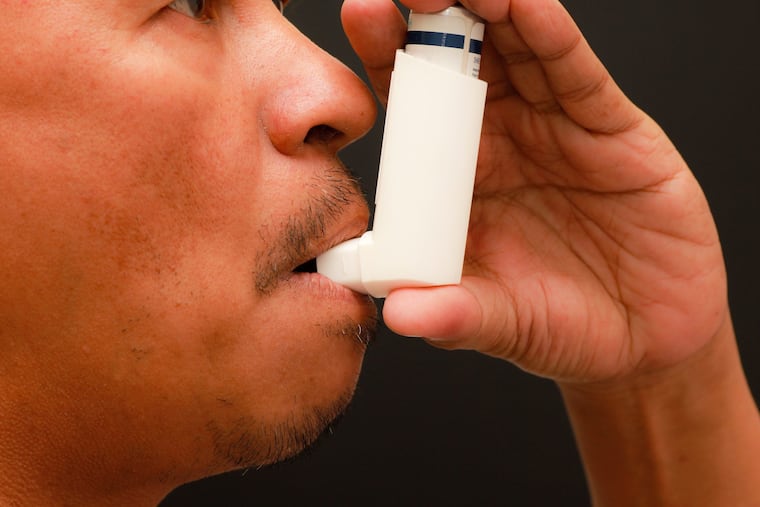What to do if your inhaler isn’t controlling asthma symptoms
Many patients who suffer from severe asthma think they just need to live with it, but in the last decade, alternative treatment options have emerged that can lessen symptoms of severe asthma.

Q: My inhaler isn’t working to control my asthma symptoms. What other treatment options are available to me?
A: Asthma is a chronic lung disease that causes the airways to become swollen and inflamed and to produce excess mucous. This can narrow the airways, making it feel as if you can’t catch your breath or you cannot get the air out of your lungs. Symptoms can also include tightness in the chest, coughing or wheezing.
Some people have very infrequent attacks or have symptoms only during exercise or from environmental irritants such as pollen or mold. Others may have symptoms all the time and very frequent attacks. For some patients, asthma severity may change over time.
There is no cure for asthma, but it is usually successfully controlled with lifestyle changes and a combination of medicines for quick relief and long-term relief. Some people may not be able to control their symptoms, despite proper use of these medicines, a sign that they may be suffering from severe asthma.
Other signs of severe asthma include:
Asthma symptoms that occur more often and are more bothersome.
Increased difficulty breathing, or a constant feeling of breathlessness.
Using a fast-acting (rescue) inhaler more often.
For these patients, severe asthma often interferes with daily activities and causes them to miss work or school.
Many patients who suffer from severe asthma think they just need to live with it, but that’s not true. In the last decade, alternative treatment options have emerged that can lessen symptoms of severe asthma.
Having your doctor review your inhaler usage and technique, reviewing other medical conditions that could affect your asthma, and making sure you’re on an appropriate medical regimen is the first step to getting your asthma under better control. If your asthma is still uncontrolled after these steps, there are more options.
Biologic therapies are injectable medications that help block the body’s response to airway triggers that cause inflammation. They are considered “personalized” or “precision” medicines because they target the underlying molecular causes of asthma. That’s why it’s important to choose the right biologic for the right patient.
Bronchial thermoplasty is a minimally invasive, outpatient procedure that is used to help open up the airways. Bronchial thermoplasty involves heating the inside of the airways using an electrode. This reduces the amount of smooth muscle inside the airways, which limits their ability to constrict, making breathing easier and reducing the number of attacks.
Don’t suffer through severe asthma, talk to your doctor about additional treatment options to return to the life you once enjoyed.
Kartik V. Shenoy is a pulmonologist at Temple Lung Center and a professor of thoracic medicine and surgery at Lewis Katz School of Medicine at Temple University.